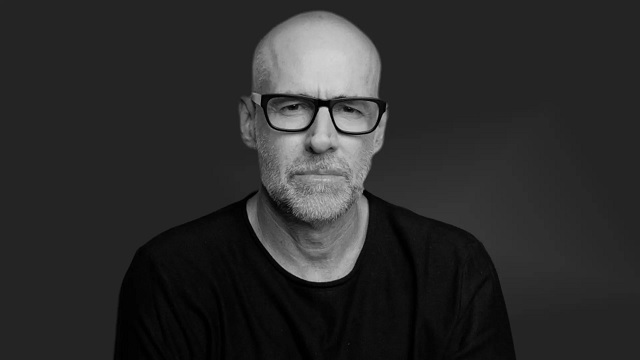The question of the importance of family structure, specifically marriage, is back in the limelight. Conservatives are promoting three papers that provide some strong evidence that children raised by married parents do better along a number of dimensions than those raised in other household forms.
For many commentators, this makes for a strong case against those who appear to claim that family structure has either a minimal effect or doesn’t matter at all. As someone who might well fall into that group, or at least appear to, I think there are several responses to these new studies, all of which can acknowledge the empirical evidence that being raised by two loving parents is better for kids than alternative family structures.
One side note: conservatives might wish to not use the term “family structure denialists” as Wilcox does in the link above.
Comparing a legitimate disagreement over empirical evidence and public policy to those who would deny the overwhelming evidence of the Holocaust is an unacceptable rhetorical move whether it comes from leftists speaking of “climate change deniers” or conservatives speaking of “family structure deniers.” The disagreements in both case are legitimate objects of intellectual discussion and the language of “denier” indicates a refusal to engage in good faith debate.
On the substance of this issue, the conservatives cheering these recent studies don’t always note that there are differences among single-parent households formed through: 1) the choice to have and raise a child by oneself; 2) death of a spouse; and 3) divorce. Each of these presents a different set of circumstances and tradeoffs that we might wish to consider when we think about the role of family structure.
The conservative defenders of the superiority of the two-parent family (and it’s presumably not just “two parents” but two parents of the opposite sex, which raises a whole other set of questions), might wish to disentangle the multiple reasons such a family structure might not be present. For example, the children of widows do better than those of women who choose not to marry the fathers of their children, and the children of widows have outcomes that look more like those of kids from two-parent families.
The empirical evidence under discussion has to be understood with an “all else equal” condition. A healthy marriage will indeed produce better outcomes than, say, single motherhood. But there is equally strong social scientific evidence about the harm done to children who are raised in high-conflict households. Those children may well be better off if their parents get divorced and they are raised in two single-parent households with less conflict.
When parents in high-conflict marriages split up, the reduction in their stress levels, especially for women, leads to improved relationships with their children and better outcomes for the kids. In general, comparisons of different types of family structures must avoid the “Nirvana Fallacy” by not comparing an idealized vision of married parenthood with a more realistic perspective on single parenthood. The choices facing couples in the real world are always about comparing imperfect alternatives.
In addition, to say that married parents create “better” outcomes for kids does not mean that other family forms don’t produce “acceptable” outcomes for kids. It’s not as if every child raised by a single mother, whether through divorce, widowhood, or simply not marrying the father, is condemned to poverty or a life of crime.
Averages are averages. Though these three recent studies do continue to confirm the existing literature’s consensus that marriage is “better” for kids, there is still much debate over how much better those outcomes are, and especially whether other family structures are or are not sufficient to raise functional adults.
And this leads to the next point, which is that parents matter too.
The focus of the “family structure matters” crowd is almost exclusively on the outcomes for kids. That parents matter too is most obvious with divorce, where leaving a bad marriage may be extremely valuable for mom and/or dad, even if it leads to worse outcomes for the kids. The evidence from Stevenson and Wolfers that no-fault divorce has led to a decline in intimate partner violence, as well as suicides of married women, makes the importance of this point clear.
We can acknowledge that higher divorce rates have not been good for kids, but we can’t do single-entry moral bookkeeping. We have to include the effects of divorce on the married couple, because adults matter too. When we add this to the idea that conflict in marriage is bad for kids, the increased ease with which adults can get out of marriages, and the resulting single parenthood, is not so clearly a net problem when we consider the well-being of both children and adults.
These calculations are complicated and idiosyncratic, which seems to suggest that they should be left to those with the best knowledge of the situation and not artificially encouraged or discouraged by public policy.
This last point raises the final question, which is what do these studies mean for public policy?
If two-parent families are better than the alternatives, what does this imply? Are conservatives suggesting that we subsidize couples who have kids? Should that apply to only biological parents and not adoptive ones? Isn’t this a case for same-sex marriage? Should we make divorce more difficult, and if so, what about the probable result that doing so would reduce the number of marriages by increasing the cost of exit?
I would certainly agree that we should stop subsidizing single-parenthood through various government programs, but I’d make the same argument about two-parent families as well. In any case, what’s not clear is what the conservatives trumpeting these studies think they mean for public policy.
Perhaps, though, they think the solutions are cultural. If conservatives wish to argue that these studies mean that we should use moral suasion and intermediary institutions such as houses of worship to encourage people to marry and stay married if they wish to have kids, or that we should encourage young people to use contraception and think more carefully about when and with whom they have sex, that’s fine. And in fact, teen pregnancies are down.
But if intermediary institutions can do all of that, then they can also play a key role in helping single parents who make the difficult decision to divorce or continue a pregnancy in the complicated circumstances of their lives. Such institutions will also likely do that more effectively than can the state.
So if we are genuinely concerned about single parenthood, we should be asking what are the best ways to deal with it. Libertarians like me might well agree with such conservatives if they think the solutions are cultural or should rest in the hands of such intermediate institutions. But if they think there are public policy solutions, particularly ones that limit or penalize the choices facing couples, I wish they would spell them out explicitly in the context of their discussions of these studies.
One last thought: It ill-serves libertarians to deny the results of good science and social science, whether it’s climate change from the left or family structure from the right. We should, of course, critically interrogate that work to make sure that it is, in fact, good. But if it is good, we should welcome it as we should first be concerned with the truth and not our ideological priors.
The next questions we should ask, however, are about the implications. In the case of these recent studies on family structure, it is incumbent upon us to assess both the quality of the work and its implications, and we should pay particular attention to what is not being seen and what questions are not being asked.
Just because one family structure is better for children all else equal means neither that other family structures aren’t good enough for kids, nor that all else is always equal, nor that we shouldn’t consider the well-being of adults when we discuss the consequences of alternative family structures.
This post first appeared at the excellent philosophy blog Bleeding Heart Libertarians.

Steven Horwitz
Steven Horwitz is the Charles A. Dana Professor of Economics at St. Lawrence University and the author of Microfoundations and Macroeconomics: An Austrian Perspective, now in paperback.







